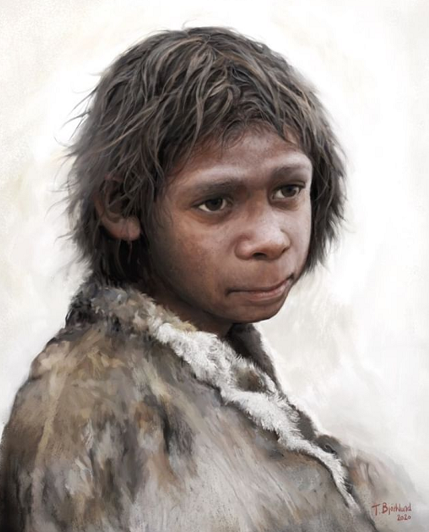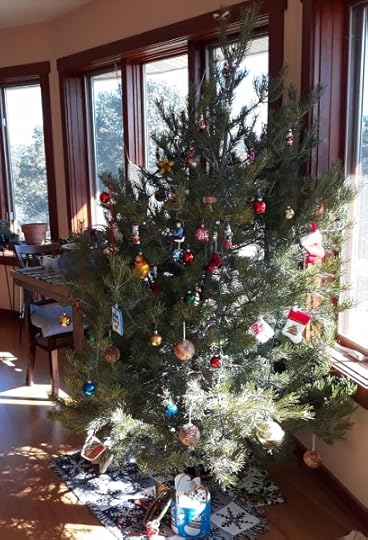Kate Rauner's Blog, page 23
January 19, 2021
Keep an Open Mind, But Don’t Let Your Brains Fall Out #thinking #think
One of my favorite sites has a great post: Elvis Sightings and You.
The message is straightforward: Nothing requires you to treat the impossible as possible. Refusing to spend your valuable time on nonsense doesn’t prove you’re close-minded, and it surely doesn’t prove the nonsense is correct.
 Some of what Elvis left behind
Some of what Elvis left behindWhen someone comes to you and offers to prove to you that the Earth is flat with their YouTube video, do you — on the principle of “questioning everything” — hear them out and listen to their argument? No, and neither should you. A Flat Earth claim is an Elvis sighting. It’s false, no matter what — no matter what — some ill-informed, gullible person has been led to believe. It is false even before it gets out of bed in the morning. It is false before it pours its coffee. And it will remain false all day long.
When a fact is a fact – not a hypothesis, not an opinion, not the subject of contradictory measurements – we don’t waste our time on arguments. We know they’re wrong even without listening to the claims or reviewing the evidence. We should not waste our time doing either.
But… but… but, I hear you stammer. Shouldn’t anyone be willing to look at anything? Well, life is short and what are you willing to spend your time doing?
Are you riled up? Read the post for yourself. After all, that’s what you should do, right?
January 14, 2021
How Did I Miss This Anniversary? Celebrate Mars Reconnaissance #nasascience #Mars
I can only blame my negligence on the distractions of our crazy virus-contaminated summer, but last August was the 15th anniversary of NASA’a launch of the Mars Reconnaissance Orbiter. One of the Red Planet’s more senior residents, millions of images and tens of terrabytes later, it’s still going.
A rich source of images for research, MRO studies atmospheric temperatures, peers underground with radar, and detects minerals on the planet’s surface… Able to zoom in on surface features at the highest resolution, the detailed, color images from HiRISE [camera] have captured dramatic scenes of nature: tumbling avalanches, skyscraping dust devils, and other features of a changing landscape. The camera has also provided images of other NASA spacecraft at Mars, like the Curiosity and Opportunity rovers. MRO has even flipped itself around to point HiRISE out at Earth and Phobos, one of Mars’ two moons. nasa.gov
Visit NASA’s site for a few amazing images (some in false color to accentuate certain details.) The detail is breathtaking.
Happy Anniversary, and wishing many more. Here’s one of my favorite images from NASA/JPL-Caltech/MSSS

That’s Mars with and without a huge dust storm. See the triangle of dots? The large one standing alone is Olympus Mons, the solar system’s largest known volcano. The other three are also massive dead volcanoes. They’re all part of the Tharsis Bulge. Maybe not the likeliest place for a Mars colony to begin, but I couldn’t resist – I sent my scifi settlers there.
Until humans land on Mars in real-life, we make-do with science fiction. Set on Mars as science knows the planet, my realistic stories are full of action and suspense mixed with everyday life on Mars. Read the individual books at Amazon and other favorite stores, or get the value-priced box set, also available at Amazon and other favorite stores.
 Read them all today
Read them all today
January 6, 2021
Radio Astronomy – Down But Not Out – Chinese Telescope Opens #astronomy
It’s new, it’s big, and it’s open to international scientists. We shed tears over the final demise of the Arecibo Observatory, which stood as the largest telescope of its type in the world for 53 years. Now a Chinese observatory, constructed in 2016, steps up.
 China’s new radio telescope
China’s new radio telescopeWith its massive 1,600-foot (500 meters) diameter dish, FAST [the new telescope’s acronym] is not only larger than the now-destroyed Arecibo telescope, but it’s also three times more sensitive. FAST, which began full operations in January of this year, is also surrounded by a 3-mile (5 kilometers) “radio silence” zone in which cellphones and computers are not allowed. livescience
China is accepting international proposals now. Yes, astronomers would have preferred to have both observatories, but it’s good to know that studies of black holes, exoplanets, and who-knows what else will continue.
December 27, 2020
Just Settled Down for a Long Winter’s Nap – Really #neanderthals #nature #biologist
How did our Neanderthal relatives survive Europe’s brutal Ice Age winters? Here’s an idea I’d never heard before: they hibernated. Their bones tell the tale.
A cache of bones from Spain show “evidence of hyperparathyroidism” and “pathognomonic lesions“. Or, in more colloquial terms, ‘rotten fence post’ bones.
 Reconstruction of a Neanderthal child
Reconstruction of a Neanderthal childHibernation wasn’t good for them. They seem to have been only partly adapted to the annual assault on their bodies and probably woke from time to time during the winter. (You think Monday mornings are tough!) But the alternative to diseased bones and kidneys was starvation. Unlike modern-era Inuits, who have access to fat-rich marine animals all winter, our desperate cousins had a poor winter environment.
The aridification of Iberia then could not have provided enough fat-rich food for the people of Sima during the harsh winter. theguardian

We say that large mammals like bears “hibernate” but a more accurate word is “torpor.” Apparently, there is a primate species, the fat-tailed lemur, that enters a winter torpor. I didn’t know that either, but lots of sources confirm the fact. (Here’s one.)
I can’t imagine what Neanderthals experienced, awaking hungry and sick… having to return to sleep if weather outside the cave looked dismal. Spring foraging better have been easy. Is the seed of the ability to enter torpor inside you and me? Maybe someday this science-fiction-sounding ability will be tapped. In the meantime, research can continue:
“The idea is a fascinating one that could be tested by examining the genomes of the Sima people, Neanderthals and Denisovans for signs of genetic changes linked with the physiology of torpor.” Chris Stringer of the Natural History Museum in London
December 26, 2020
True Face #MerryChristmas #history
When the Romans raided the garden of Gethsemane, Judas had to show the soldiers which one was Jesus because they couldn’t tell him apart from his disciples. While icons and artwork can be beautiful and inspirational, what about the real man? This question and its answer doesn’t erase two thousand years of our developed religions, morals, and traditions. For me, it deepens my understanding.
 Original article is behind a pay-wall
Original article is behind a pay-wallWhat did he really look like? Popular Mechanics produced an answer in 2002 using forensic anthropology, and it’s still my favorite. If he looks a bit puzzled in this rendering, I can imagine many reasons why. Historian Bart D. Ehrman writes “Jesus would not recognize himself” in modern Christian preaching. “[H]is world was not ours, his concerns were not ours, and – most striking of all – his beliefs were not ours.”
Jesus looked like the people of his time and place, and it’s only natural for us to each envision him as a person of our time and place. History doesn’t negate that at all.
December 25, 2020
Christmas Morning #MerryChristmas #HappyChristmas
December 22, 2020
How Much Inconvenience is a Life Worth? #safety #automobile
Spectacular crash at the recent Bahrain International Circuit Formula One race:
 A 1951 race car – people have been working on making these cars faster and more survivable for a long time
A 1951 race car – people have been working on making these cars faster and more survivable for a long timeThe car tore in half, clean open, rupturing the full gas tank and spraying gasoline everywhere… The terrifying orange-red plume was massive. It engulfed everything. wired.com
The driver suffered minor injuries. Yes, there was an immediate response from fire fighters and medics on the scene, but engineering played a big role long before the crash occured.
Brilliant scientific advances that, together, kept him alive: his Head and Neck Support system, his racing harness, and his logo-covered high-tech suit… [and] the recently implemented Halo device, a ring positioned above the driver compartment that is designed to absorb crash impact. wired.com
As a volunteer firefighter, I’m familiar with the saying that safety rules are written in blood. I guess I could add that safety gear is crafted from broken bodies. We humans learn slowly from experience, but we learn.
So if a driver can walk away from a mobile crematorium, why do 16,000 to 17,000 Americans die in car accidents every year? It’s not for a lack of engineering. But implementing engineering can be expensive and often uncomfortable. This is a risk/benefit calculation, and American’s aren’t crazy. The risk to a Formula drivers racing at 150 mph is higher than your risk driving to the grocery store. The question is, how much of that advanced technology are you able and willing to install in your car?
A familiar risk is more acceptable than a new risk, risks to adults are more acceptable than risks to children, and a risk you undertake voluntarily is more acceptable than one imposed upon you. That’s because you’re human. Which also means a risk in the future is more acceptable than a risk today, a risk that never bit you is more acceptable than one you’ve experienced, and a risk that’s difficult to see or quantify is more acceptable than one staring you in the face.
Dangers like global warming and pandemics sneak past human nature. Humanity compensates with our big brain, and with social institutions where specialists handle the calculations for us, but that doesn’t always make us happy today – right this minute – as we gaze at the world and see, or don’t see, what’s facing us.
December 16, 2020
Crescent Moon – Jupiter/Saturn Conjunctions #astronomy #citizenscientist
Quite the holiday treat!
As we are getting ready for the Grand Conjunction on the 21st the Moon reappears in the evening skies and waxes its way past Jupiter and Saturn on Wednesday the 16th and Thursday the 17th.
Click here for details: bobs-space.net
December 15, 2020
New Anthology – Superb Collection of Speculative Fiction – Free eBook – by 4 Outstanding Women Authors #giftidea #scifibooks #shortstories
The holiday season is in full swing, even if our COVID year is the strangest ever. What better time to curl up in your favorite chair with some good reads? I’ve joined with three other writers from my author group to bring you eight short stories of fantasy and science fiction. Eight worlds to explore. Eight heroines to meet. From me to you, this free eBook, and please share the links with your friends and family.
Claim your free eBook now in Kindle or your favorite digital format. Paperback available too.

Update: On it’s second day after release, Stunning Short Stories rises to the top of its Amazon categories. #1 in Scifi Anthologies, and also #5 in Metaphysical Fiction and #6 in Time Travel Scifi. So many categories because the stories range across eight fantastic worlds. Claim your free ebook today or order the paperback from Amazon. Click now and choose your favorite store and digital format.

From me to you, have a joyous holiday season

December 10, 2020
Bootprints on Mars… in only 6 years?! #Mars #SpaceX
I realize that Elon Musk’s predictions aren’t always spot-on, but SpaceX is a star of the private space industry, so when…
 This is a NASA image, but anyone going to Mars will need to produce food, whether staying forever or only a short time
This is a NASA image, but anyone going to Mars will need to produce food, whether staying forever or only a short timeCompany founder and CEO Elon Musk said on Tuesday (Dec. 1) that he’s “highly confident” SpaceX will launch people toward the Red Planet in 2026, adding that the milestone could come as early as 2024 “if we get lucky.” space.com
… my little heart goes pitter-pat. The Starship prototypes are already under development with several tests completed, and the latest, #8, is about to launch for a major test flight.
I’m so used to space missions requiring patience. It takes years and sometimes decades to launch a probe. Americans don’t want to see NASA astronauts die in space, so with all today’s caution and redundancies, crewed missions feel distant no matter what schedule is announced. But private companies are different.
Musk wants to die on Mars (“just not from impact,” as he’s said.) Yeah, he’s only 49 years old, but he’s impatient. Will he travel on that first flight? Will it really take off in four to six years? Oh boy oh boy oh boy. Can’t wait to find out.
If you can’t wait either, take a scifi trip to the first near-future colony. But be warned: something’s terribly wrong on Mars.

Click Now to Buy the Value Priced eBook Box Set on Amazon
Click Here to Buy from More Favorite Stores in Major Digital Formats
or Start with Book 1 – Glory on Mars – at Amazon





